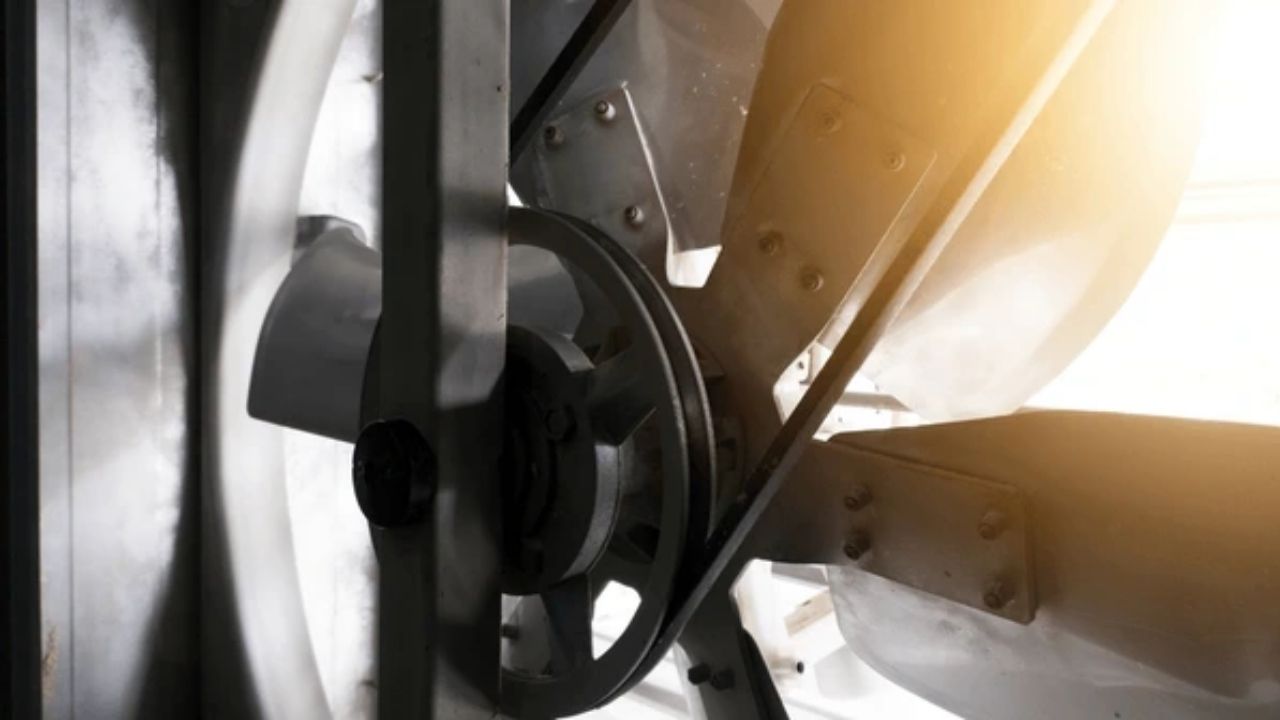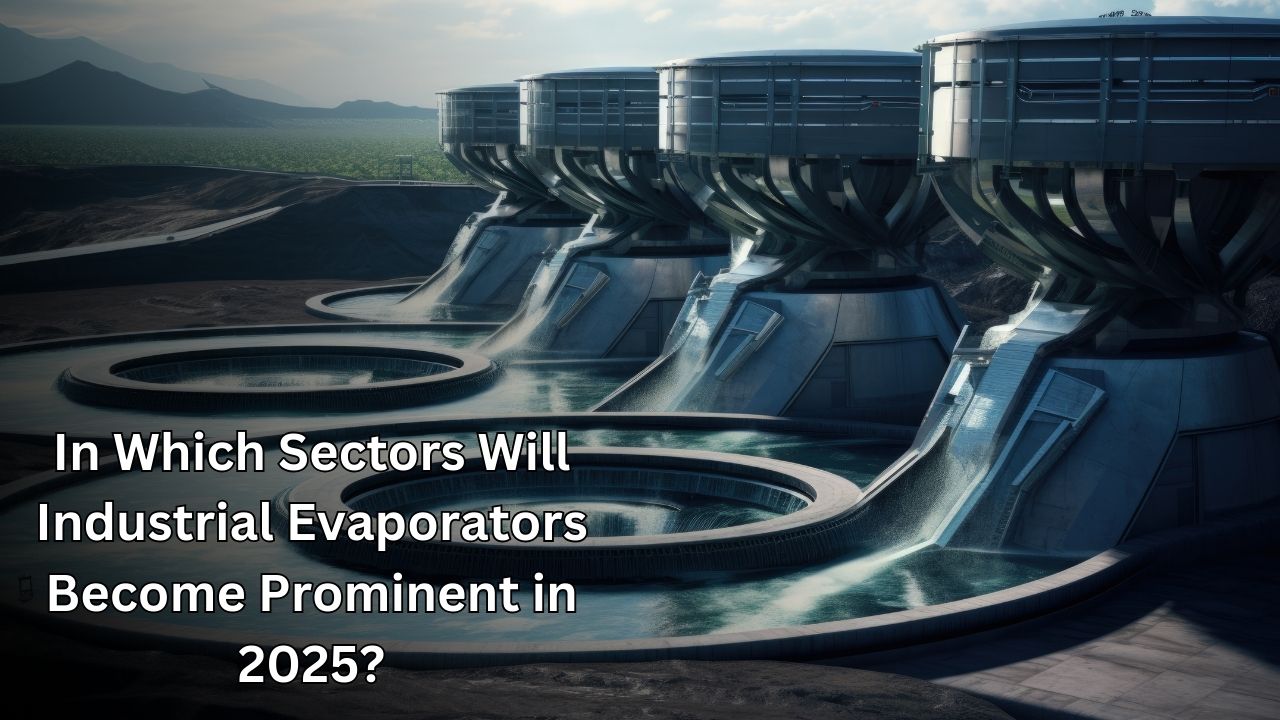
Axial Fan Types Performance and Application Areas


In 2025, industrial evaporators stand out in multiple sectors by offering energy efficiency, process optimization, and environmental sustainability. These devices play a critical role in processes like liquid evaporation, concentration, and purification. Across industries such as food, chemicals, pharmaceuticals, and energy, evaporators provide cost advantages and environmental compliance. Below, we explore the sectors where this technology is making the most impact in 2025.
Industrial evaporators have become an indispensable part of modern industry. In 2025, these devices transform liquids into valuable products, delivering both economic and environmental benefits. Energy-efficient technologies reduce production costs while minimizing carbon footprints. Innovations like mechanical vapor recompression (MVR) and thermal vapor recompression (TVR) enhance the performance of evaporators.
Evaporators are notable for their adaptable designs, meeting the needs of various industries. Stainless steel surfaces and automated control systems ensure hygiene and reliability, which are critical in sensitive sectors like food and pharmaceuticals. Additionally, integration with renewable energy sources makes these devices an eco-friendly solution.

The food and beverage sector is one of the primary areas where industrial evaporators are widely used. In the production of milk powder, fruit juice concentrates, sugar syrups, and coffee extracts, evaporators reduce liquid content, shrinking product volume and extending shelf life. In 2025, energy-efficient evaporators deliver hygienic production that meets food safety standards.
Automated cleaning systems and stainless steel surfaces eliminate contamination risks. For instance, in dairy products, evaporators preserve nutritional value while evaporating water, offering a significant advantage in organic food production. Modular designs allow use across a wide range, from small-scale businesses to large factories. Evaporators also reduce waste, supporting eco-friendly practices.
In the food industry, evaporators lower logistics costs. Concentrated products take up less space and are easier to transport, creating a strategic advantage in global supply chains.
The chemical and petrochemical industry is a demanding field where evaporators operate under high temperatures and pressures. Evaporators are critical for chemical separation, solvent recovery, and wastewater treatment. In 2025, MVR systems reduce energy consumption, minimizing the environmental impact of evaporators.
Corrosion-resistant alloys provide long-lasting performance against aggressive chemicals. Automation systems refine process control, enhancing reliability. In the chemical industry, evaporators support goals like waste minimization and valuable material recovery. For example, separating chemical components from wastewater delivers both economic and environmental gains.
The high-efficiency designs of evaporators reduce energy costs and optimize production processes, creating a competitive edge in the chemical sector.
The pharmaceutical sector is an area where industrial evaporators excel in precision-driven processes. Essential for the concentration and purification of active pharmaceutical ingredients (APIs), evaporators are indispensable. In 2025, evaporators designed to meet GMP standards ensure reliability in sterile production environments.
Energy-saving systems lower costs and reduce waste in pharmaceutical production. Precise temperature control preserves the chemical structure of components. Compact designs offer high efficiency in limited spaces, a key advantage for small-scale production of high-value drugs. Evaporators drive innovation and accelerate processes in the pharmaceutical industry.
Hygienic coatings and automated cleaning systems facilitate compliance with the industry’s stringent regulations.
Energy and waste management is a field where evaporators make a significant difference in environmental sustainability. In wastewater treatment plants, evaporators enable the evaporation of contaminated water and the recovery of valuable materials. For instance, evaporators are used to extract minerals like lithium from mining wastewater.
Systems powered by renewable energy reduce energy consumption and carbon footprints. In 2025, solar energy integration offers a cost-effective solution for wastewater treatment in remote areas. This is a strategic step for businesses aiming to align with global climate goals, such as the Paris Agreement. Evaporators support circular economy principles.
In the energy sector, evaporators promote the efficient use of renewable resources, delivering environmental and economic benefits.
Industrial evaporators are a core component of cooling and climate control systems. In 2025, these devices are used across a wide range, from cold storage facilities to logistics centers, providing precise temperature control. In food logistics, evaporators are critical for preserving the freshness of perishable goods.
Smart control systems and low-energy fans boost evaporator efficiency. Eco-friendly refrigerants support sustainability goals. High-efficiency heat exchangers reduce energy costs, offering both economic and environmental advantages in the cooling sector.
In 2025, industrial evaporators are gaining significant traction in the data center and technology sector. The proliferation of artificial intelligence, the Internet of Things (IoT), and high-performance servers has heightened the cooling demands of data centers. evaporators provide precise temperature control, ensuring the reliability and longevity of equipment. Managing the heat generated by high-density computing systems has made evaporators a critical component.
Energy efficiency is vital in data centers, where energy consumption is a major cost driver. industrial evaporators address this with designs featuring low-energy fans and optimized heat exchangers. Integrated with free cooling technologies, evaporators leverage ambient temperatures to save energy, particularly in colder climates, offering substantial cost reductions.
The compact designs of evaporators optimize space utilization in data centers. Modular systems provide flexibility, allowing rapid adaptation to increasing cooling demands. For instance, when a new server room is added, evaporators can be easily scaled, enabling tech companies to meet growing data processing needs efficiently.
In 2025, evaporators are becoming smarter with IoT-based control systems. These systems monitor temperature and humidity in real time, optimizing evaporator performance. AI-driven algorithms dynamically adjust cooling processes to further reduce energy use, lowering operational costs and environmental impact.
The use of eco-friendly refrigerants aligns data centers with sustainability goals. The high-efficiency designs of evaporators reduce carbon footprints, helping the tech industry meet its environmental responsibilities. Major cloud computing providers and data center operators are adopting these technologies to gain cost advantages and lead in green technology trends.
Agriculture and greenhouse systems are an innovative field where evaporators are applied. In 2025, evaporators in modern greenhouses maintain optimal temperature and humidity levels to enhance plant growth. Evaporative cooling systems create a cool environment through water evaporation.
Energy-saving systems boost agricultural productivity, especially in water-stressed regions. IoT integration enables remote control of evaporators, supporting organic farming and sustainable production models.

Fill out the form to discover the most suitable high-end products for your projects. Contact Us Now.